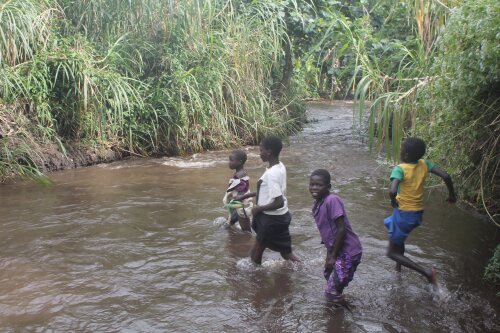'Nodding syndrome is only the tip of the iceberg'
At an international workshop, UAntwerp and the World Health Organisation shared some groundbreaking insights into river epilepsy. This often- overlooked disease kills an estimated 200,000 to 400,000 people in central Africa every year. Researchers at the University of Antwerp have proved that the affliction known as nodding syndrome is just one of the forms that river epilepsy can take.
River epilepsy, or onchocerciasis-associated epilepsy (OAE), is a disease caused by a worm that also causes river blindness. The worm is transmitted by black flies, which thrive near fast- flowing rivers. 'OAE occurs in countries such as South Sudan, Cameroon, Tanzania, Uganda, the Democratic Republic of Congo and the Central African Republic,' says infectious disease specialist Prof. Robert Colebunders (UAntwerp/Institute of Tropical Medicine). 'Especially in remote areas, often ravaged by war, there are no or insufficient measures to curtail river blindness. As a result, the incidence in these places is high. Quality healthcare is often lacking, so many patients are treated late, or not at all.'

Tip of the iceberg
Six years ago, Prof. Colebunders organised a workshop on nodding syndrome (NS), a form of epilepsy characterised by seizures in which the head falls forward, along with mental deterioration and growth disorders. Researchers then already suspected there was more to it. 'In remote areas where the worm that causes river blindness thrives, there was also an abnormally high number of people with other forms of epilepsy,' Prof. Colebunders explains. 'We have been able to demonstrate that nodding syndrome is just one of the ways that OAE can manifest. So nodding syndrome was only the tip of the iceberg. We also proved, together with African colleagues, that OAE can be prevented by stepping up the fight against river blindness. This can be done by treating the population at least once with a drug called ivermectin.'
Burden of disease
These findings have since been recognised by the World Health Organisation and are accelerating the fight against the disease. Prof. Colebunders: 'In the medical world, there is such a thing as the burden of disease. This is a way of expressing how much a disease weighs on a person's health. If the link between river blindness and OAE is recognised, the disease will be considered more serious. This creates more interest and opportunities for fighting the disease.'